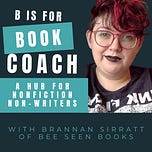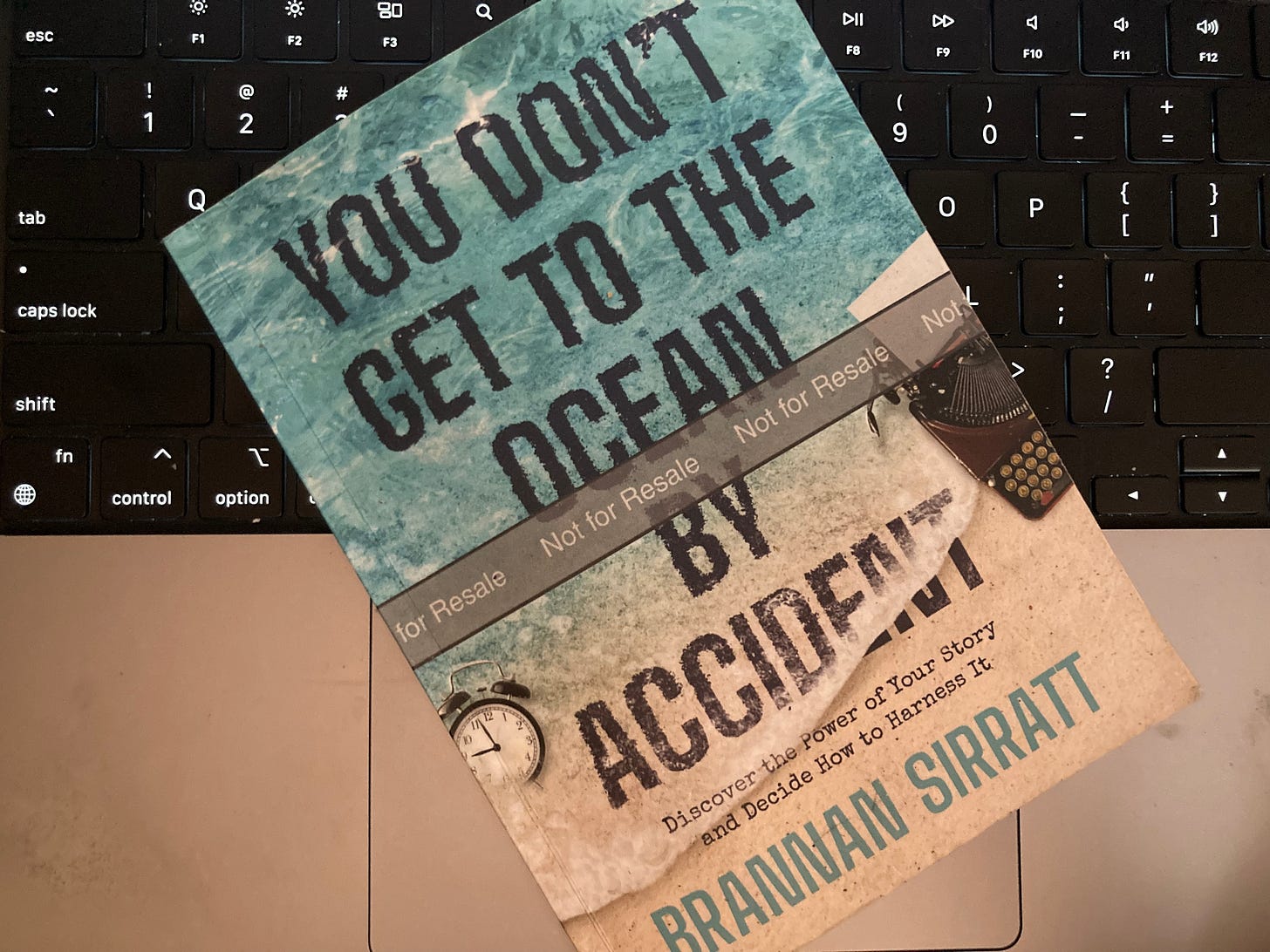Welcome to a special edition of B is for Book Coach. In these episodes, I’m going to read through pieces of You Don’t Get to the Ocean by Accident—the workbook version of the early work I do with all of my authors.
If you want to follow along or jump ahead, pocket-sized copies are available on Amazon, and every Substack subscriber gets a fillable PDF copy as well.
Today, we’re reading from: The Project.
This is the first question I ask on a consult call: why a book?
I know I can get a ton of conversation and detail out if I ask about your topic. If there’s one thing writers aren’t good at, it’s concisely explaining what they’re writing about.
(We’ll get to that later, though, because I want you to be good at that.)
But I don’t really care about that just yet.
Not because I’m not interested in your topic, but because we both already know that there’s interest in your topic.
You’ve talked to friends about it, taught clients about it, worked colleagues through it. You’ve seen specials and read books and listened to podcasts.
What we don’t yet know is why you’re drawn to put that specific topic into book form.
Honestly, most of the forms mentioned in the last paragraph are a lot easier to access than writing a whole-ass book.
And they’re just as viable for reaching a wide range of audiences.
So what is it about a book that has you here, doing this work?
We sometimes want to have written a bestselling book, not to write and sell a book.
Sometimes, I wonder if the meme “Writers don’t want to write; they want to have written” is as true for nonfiction as it is for fiction.
Because more often, I see us enjoying the process of expressing ourselves on the page but pulling back when it’s time to consider that page being read by anyone.
You may relate to one of these two examples:
One: I want to write a bestseller and get picked up by The Daily Show and get on a TED main stage.
But when I try to picture the TED topic or who I’d have to hand the book to in order to get on the show or where I would promote the book, the vision gets blurry.
Two: I know exactly what I want to say and why, and honestly I just want to impact one person, somehow.
But when I imagine myself bringing that book to a room full of people where that one person might be, I wonder if it’ll have the reach.
Neither is wrong. In fact, both have to be faced.
For now, it’s enough to name what you have access to—what is keeping you here, doing the work that will eventually change someone’s life.
Ask Yourself
Why are you writing a book?
What would wild success with this project look or feel like? How do you see yourself leveraging the book?
What’s the best possible compliment you could receive on it, and who would it come from?
Why are you writing this book? What are you hoping to say about your area of expertise, or the world?
It’s 3 years after launching your book. What does life look like?
Looking back on those 3 years, how have you used the book to get to that place? Who are you working with and how did the book connect you with them?
What happened in the first year after launch that set you on that path?
What’s more prominent when you envision “wild success” in your future—you as author, or you in another aspect of life? Does being an author feed into your broader work or does your work support your primary identity as an author?
Hey, thanks for creating this extra space with me today.
To get the rest of the workbook right away, look for You Don’t Get to the Ocean by Accident on Amazon, or subscribe to get a free copy right now.
And as always, whenever your book is ready to emerge, the space we made today will be here waiting for you.
And so will I.












Share this post